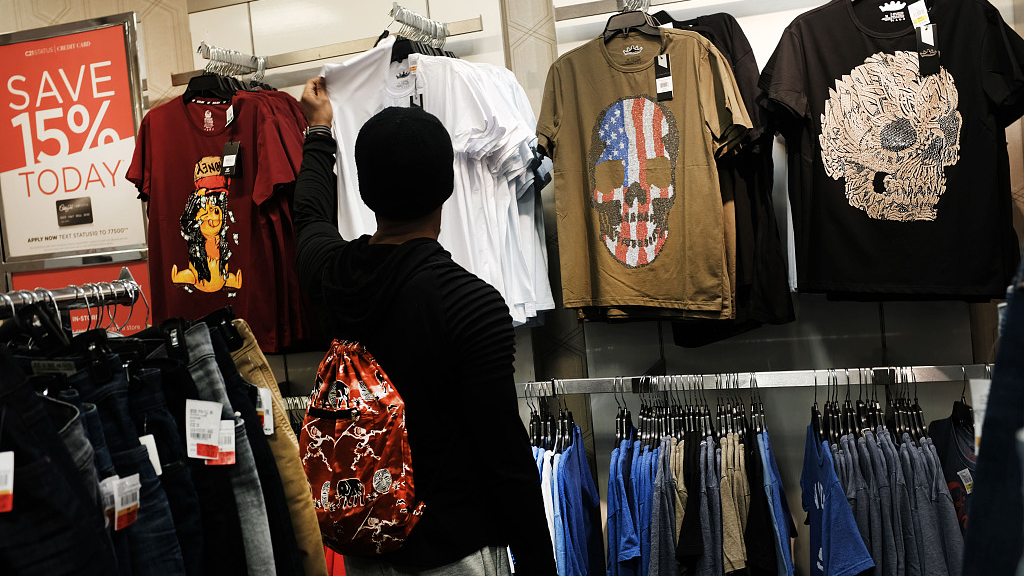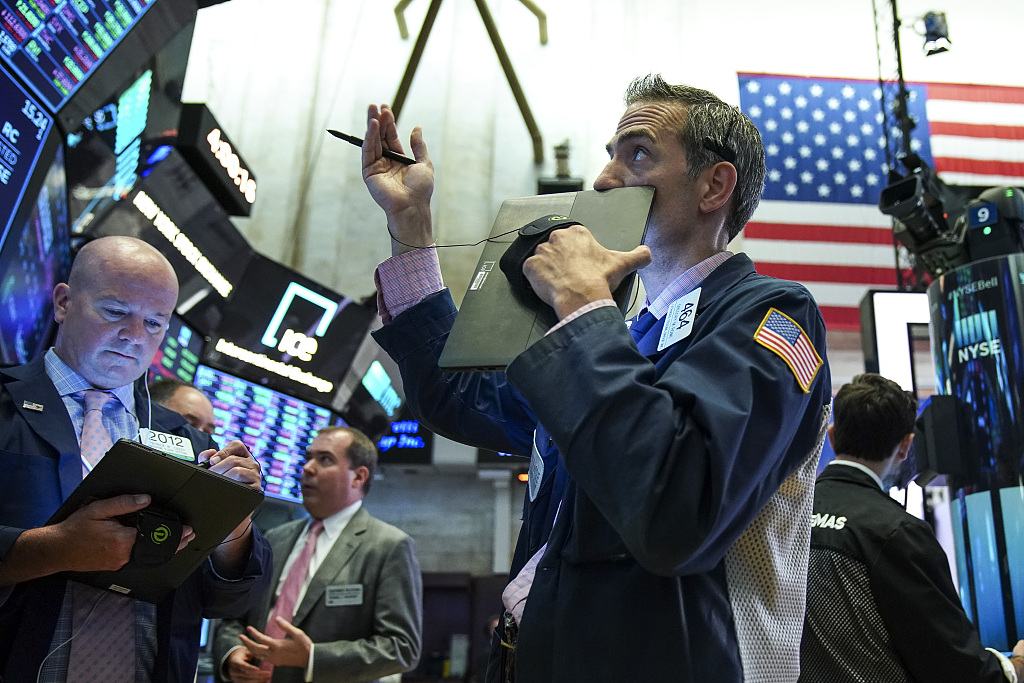

Editor's Note: Tom Fowdy is a British political and international relations analyst and a graduate of Durham and Oxford universities. He writes on topics pertaining to China, the DPRK, Britain and the United States. The article reflects the author's opinion, and not necessarily the views of CGTN.
Yesterday, Donald Trump announced abruptly another escalation of the trade war, stating he will impose a tariff of 10 percent on the remaining 300 billion dollars' worth of Chinese exports to the United States. In response to the news, U.S. stocks tumbled, with S&P 500 and the Nasdaq experiencing their worst week of the year. Businesses are nervous. The U.S. economic growth slowdown to 2.1 percent and a 0.6 percent drop in business investment had already rattled the market. And the tariff has made things worse.
But how exactly will the average American consumer be impacted? Now that Trump has vowed to extend the tariff to every single item imported from China, he has made it an absolute certainty that every single aspect of life may be subject to a price hike. In doing so, the White House has repeatedly ignored extensive warnings from retail and commercial sectors outlining the risks. As Matt Priest, president of the Footwear Distributors and Retailers of America, told Bloomberg in reaction to the new tariffs: "We are dismayed."
For the past several decades, the Western world has been accustomed to a lifestyle aptly described as "Made in China." In an increasingly globalized world, businesses seeks out China to produce their goods, eyeing the low production and labor costs. As a result, China has become "the world's factory." It produces literally everything. Just take a look at some of the objects around you right now and see where they were made. Your computer is likely being assembled in China. Anything miscellaneous and plastic are probably made in China.
As World Bank statistics go, U.S. has imported fuels, minerals, vegetables, livestock, raw materials, wood, vehicles, rubber, footwear, metals, clothing, electronics and many more items from China. The broad scope of imports touches every aspect of individual life. Five hundred billion dollars, after all, is not an insignificant number.

Traders and financial professionals work ahead of the closing bell on the floor of the New York Stock Exchange (NYSE) on August 1, 2019, in New York City, witnessing the market tumble in reaction to Trump's tariff. /VCG Photo
Now, consider this: Donald Trump has now decided to place tariffs on every single item outlined above. That means every single thing American businesses import into the country from China is now subject to some form of tax. The impact will be huge. We're not just talking about consumers buying from store shelves. We are talking about entire sectors of the U.S. economy being penalized – entire supply chains now become more costly due to some companies' reliance on parts and materials coming from China. Business leaders' attempts to deter the U.S. president from escalating the trade war were completely ignored.
Costs are set to rise, unquestionably. As Chad Brown, a trade expert at the Peterson Institute for International Economics, said, "What's really different about this next round of President Trump's tariffs is that they mostly hit goods bought by American consumers. For the first time, this means higher costs of clothing, shoes, toys, and a lot of consumer electronics." Given this, studies are predicting that the new tariffs may cost as much as 900 dollars to 1,200 dollars a year for each American family.
To justify the fallout, Trump has repeatedly claimed the U.S. is "making money from the tariffs" as "China is paying for them." This is a lie. While so far the tariffs have forced American businesses to pay an estimated 20 billion U.S. dollars in import duties, the administration has had to pay 28 billion dollars in aid for farmers damaged by the fallout of the trade war, meaning that this tariff has no merit at all.
As a result, the consequences of this escalation should be made clear: Trump's decision to increase tariffs to cover all imports from China will not bring him any closer to getting a trade deal, but it will certainly punish the everyday American.
Far from "cheating" and "ripping us off," the U.S. has for decades benefited enormously from the presence of cheaply made and convenient Chinese goods that has enabled mass consumerism and kept inflation down as production costs soared at home. Trump has now taken a sledgehammer to what is America's commercial partner, and the fallout will take years to fix.
(If you want to contribute and have specific expertise, please contact us at opinions@cgtn.com.)

Copyright © 2018 CGTN. Beijing ICP prepared NO.16065310-3
Copyright © 2018 CGTN. Beijing ICP prepared NO.16065310-3